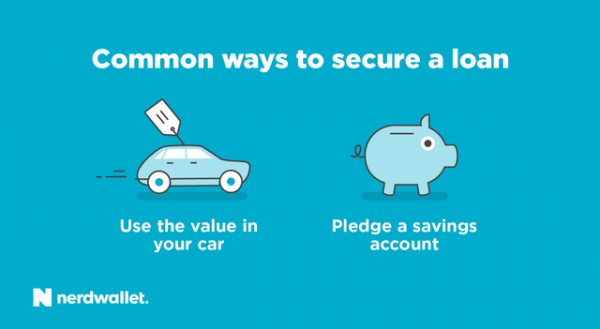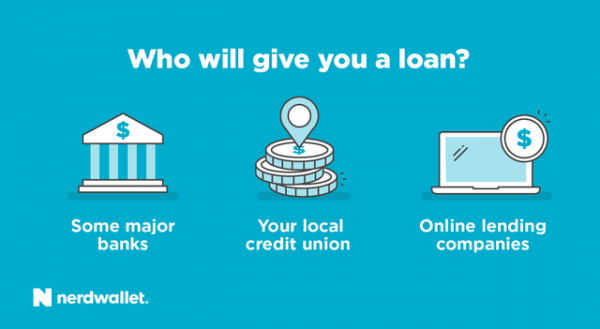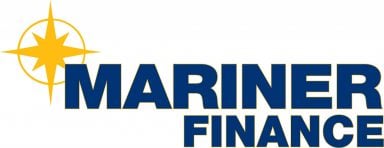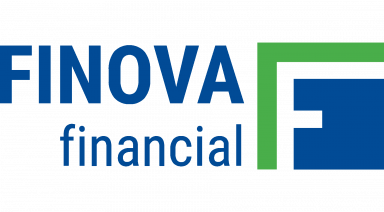You can trust that we maintain strict editorial integrity in our writing and assessments; however, we receive compensation when you click on links to products from our partners and get approved. Here's how we make money.
A secured loan is one that enables you to pledge the title to your vehicle, savings account or some other asset in return for a lower rate or a larger loan amount. The downside: If you don’t make timely payments, the lender can seize your asset and your credit score will suffer.
Secured personal loans
Banks, credit unions and some online lenders offer secured loans.| APR ranges | Loan amounts | Collateral required | |
|---|---|---|---|
Finova Financial | 17.00% - 30.00% | $500 - $5,000 | Paid-off car with comprehensive and collision insurance |
LightStream* | 2.29% - 17.49% | $5,000 - $100,000 | None for unsecured loans; auto title for secured loans |
OneMain Financial | 9.99% - 35.99% | $1,500 - $25,000 | Paid-off car with comprehensive and collision insurance |
Wells Fargo | 5.50% - 13.79% | $3,000 - $100,000 | Savings accounts or CDs |
Mariner Finance* | 24.00% - 36.00% | $1,000 - $25,000 | Car with comprehensive and collision insurance |
| Federal credit unions | Varies, up to 18.00% | Varies | Varies |
IN THIS ARTICLE
What can you use to secure a personal loan?Secured loans from banks
Secured loans from credit unions
Secured loans from online lenders
What can you use to secure a personal loan?

You can borrow against your car
The vast majority of secured personal loans use a car as collateral. These loans — known as auto equity loans — let you borrow money against the market value of your paid-off car.A lender that accepts your car as collateral may require that you insure it for physical damage, naming the lender as loss payee in the event it’s totaled. If you already dropped collision and comprehensive coverage on your paid-off car to save money, lenders may sell you optional credit insurance, which is often more expensive than the cheapest full coverage.
There are two other options to borrow against your car:
- Auto refinance is an option if you still owe money on your car but have substantial equity. Refinancing replaces your original loan with a new loan at a higher amount. You keep the extra cash. (You’re likely to qualify for a refinance if your credit has improved or interest rates have dropped.)
- Auto title loans, which typically have annual percentage rates as high as 300%, don’t require a credit check and carry a higher risk of having your vehicle repossessed. NerdWallet does not recommend auto title loans.
You can borrow against your savings
If you have money in a savings account, it’s cheaper to use that money rather than get a personal loan that charges interest. If you must hang on to your savings or need more money than what’s in your account, some lenders will make secured personal loans with savings accounts or certificates of deposits as collateral. You likely won’t have access to your account or CD until you repay the loan.It can make sense to secure a loan against a CD — instead of a savings account — because withdrawing money from a CD can incur an early withdrawal penalty. You’ll want to compare that penalty with the interest charge on a personal loan.
Where to get a secured personal loan

Banks
Of the nation’s five largest banks by deposits, only Wells Fargo allows those with savings accounts or CDs to use them as collateral to qualify for a loan or get a lower interest rate. The bank also offers CD-secured lines of credit that are different from loans. Borrowers cannot touch the money in their account for the duration of the loan.The chances of qualifying for a loan still depend on a borrower’s credit score, income and other debts, but pledging an account increases the likelihood of qualification significantly, says Jason Vasquez, a spokesman for Wells Fargo.
•APR: 5.50% to 13.79%
•Loan amount: $3,000 to $100,000
•Loan terms: One to five years; can go up to 10 years
•Minimum credit score: Not provided, but generally 680 or higher
•Time to funding: Typically same day
•Fees: No origination fee for unsecured loan; $75 for secured loan; $39 late fee and returned payment fee
•Loan amount: $3,000 to $100,000
•Loan terms: One to five years; can go up to 10 years
•Minimum credit score: Not provided, but generally 680 or higher
•Time to funding: Typically same day
•Fees: No origination fee for unsecured loan; $75 for secured loan; $39 late fee and returned payment fee
Credit unions
Some credit unions offer CD-secured loans, typically to build credit or get cash quickly at a lower rate than other types of loans. Credit unions are a good first stop for most types of loans, because they consider borrowers with poor credit and provide affordable loans.Federal credit unions offer a maximum rate of 18% APR to their members, although there may be extra application fees.
Secured loans from online lenders
A secured loan from a reputable online lender will carry a maximum APR of 36%. The rate, the amount borrowed and the length of the loan will be based on both your credit and the value of your collateral.Some lenders let you apply for a secured loan upfront, but others may show you the option only after you’ve tried applying for an unsecured loan.
Most online lenders let you check your rate without affecting your credit, so it doesn’t hurt to first apply for an unsecured loan at multiple lenders to see if you qualify. You can use NerdWallet’s lender marketplace to compare rates in one place.
OneMain and Springleaf, its parent company, offer secured loans at rates below 36% to car owners with poor credit scores. Nearly half of OneMain customers use their car or another asset to qualify for a larger loan amount or get a lower rate.
More about OneMain:
- Offers lower starting rates on secured loans than unsecured loans
- Offers auto equity loans and cash-out refinancing loans. The average APR on an auto-secured loan is 20%, according to the company.
- Requires proof of comprehensive and collision car insurance
- Doesn’t accept some types of cars, such as those that carry branded titles or are used commercially
More about Mariner:
- Requires borrowers to secure loans of more than $10,000
- Requires proof of comprehensive and collision car insurance; the car doesn’t need to be fully paid off
- May offer a higher loan amount to a borrower, but no rate discount, according to the company
Information below provided for unsecured loans; secured loan terms may vary.
More about LightStream:
- The lender offers secured auto loans, but all other loans (for boats, RVs, etc.) are unsecured
- For auto loans, LightStream will hold the lien to the vehicle
Amrita Jayakumar is a staff writer at NerdWallet, a personal finance website. Email: ajayakumar@nerdwallet.com. Twitter: @ajbombay.
Updated June 8, 2017.
PERSONAL LOANS RATINGS METHODOLOGY
NerdWallet’s ratings for personal loans awards points to lenders that offer consumer-friendly features, including soft credit checks, no origination fees, payment options, short time to funding, interest rate caps of 36% and absence of prepayment penalties. Features are considered for their positive impact on consumers’ credit history and financial health. To ensure accuracy and consistency, our ratings are reviewed by multiple people on the NerdWallet Personal Loans team.
 — Among the very best for consumer-friendly features
— Among the very best for consumer-friendly features
 — Excellent; offers most consumer-friendly features
— Excellent; offers most consumer-friendly features
 — Very good; offers many consumer-friendly features
— Very good; offers many consumer-friendly features
 — Good; may not offer something important to you
— Good; may not offer something important to you
 — Fair; missing important consumer-friendly features
— Fair; missing important consumer-friendly features
 — Poor; proceed with great caution
— Poor; proceed with great caution
 — Among the very best for consumer-friendly features
— Among the very best for consumer-friendly features — Excellent; offers most consumer-friendly features
— Excellent; offers most consumer-friendly features — Very good; offers many consumer-friendly features
— Very good; offers many consumer-friendly features — Good; may not offer something important to you
— Good; may not offer something important to you — Fair; missing important consumer-friendly features
— Fair; missing important consumer-friendly features — Poor; proceed with great caution
— Poor; proceed with great caution
We want to hear from you and encourage a lively discussion among our users. Please help us keep our site clean and safe by following our posting guidelines, and avoid disclosing personal or sensitive information such as bank account or phone numbers. Any comments posted under NerdWallet's official account are not reviewed or endorsed by representatives of financial institutions affiliated with the reviewed products, unless explicitly stated otherwise.












